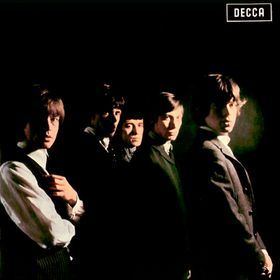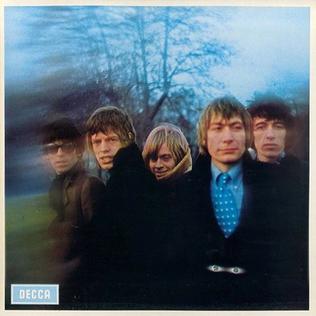| "Tell Me" | ||||
|---|---|---|---|---|
 | ||||
| Single by The Rolling Stones | ||||
| from the album The Rolling Stones | ||||
| B-side | "I Just Want to Make Love to You" | |||
| Released | 13 June 1964 (U.S.) | |||
| Format | 7" | |||
| Recorded | February 1964 | |||
| Genre | ||||
| Length |
| |||
| Label | London 45-LON 9682 | |||
| Songwriter(s) | Jagger/Richards | |||
| Producer(s) | Andrew Loog Oldham | |||
| The Rolling Stones singles chronology | ||||
| ||||
"Tell Me (You're Coming Back)" is a song by English rock band The Rolling Stones, featured on their 1964 self-titled album (later referred to as England's Newest Hit Makers in the US). It was later released as single A-side in the US & Canada only, becoming the first Jagger/Richards song that the band released as a single A-side, and their first record to enter the US Top 40. The single reached #24 in the US and #1 in Sweden. It was not released as a single in the UK.

The Rolling Stones are an English rock band formed in London in 1962. The first stable line-up consisted of bandleader Brian Jones, Mick Jagger, Keith Richards, Bill Wyman (bass), Charlie Watts (drums), and Ian Stewart (piano). Stewart was removed from the official line-up in 1963 but continued to work with the band as a contracted musician until his death in 1985. The band's primary songwriters, Jagger and Richards, assumed leadership after Andrew Loog Oldham became the group's manager. Jones left the band less than a month before his death in 1969, having already been replaced by Mick Taylor, who remained until 1974. After Taylor left the band, Ronnie Wood took his place in 1975 and continues on guitar in tandem with Richards. Since Wyman's departure in 1993, Darryl Jones has served as touring bassist. The Stones have not had an official keyboardist since 1963, but have employed several musicians in that role, including Jack Nitzsche (1965–1971), Nicky Hopkins (1967–1982), Billy Preston (1971–1981), Ian McLagan (1978–1981), and Chuck Leavell (1982–present).

The Rolling Stones is the debut album by the English rock band the Rolling Stones, released by Decca Records in the UK on 16 April 1964. The American edition of the LP, with a slightly different track list, came out on London Records on 30 May 1964, subtitled England's Newest Hit Makers, which later became its official title.

Jagger/Richards is the songwriting partnership of Mick Jagger and Keith Richards, a musical collaboration whose output has produced the majority of the catalogue of the Rolling Stones. They are one of the most successful songwriting partnerships in history. In addition to Jagger and Richards' songwriting partnership, they have also produced or co-produced numerous Rolling Stones albums under the pseudonym The Glimmer Twins.




















